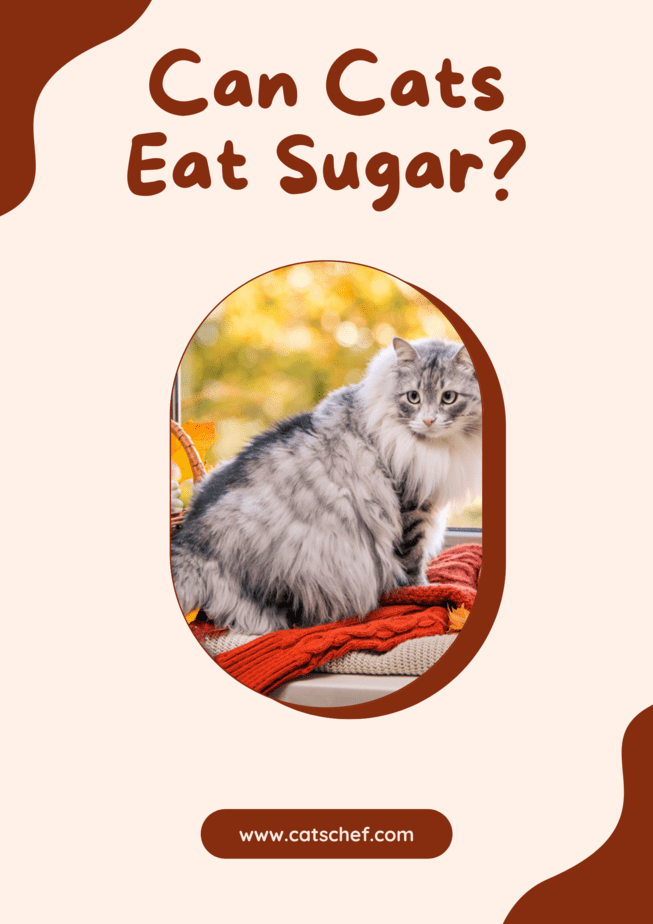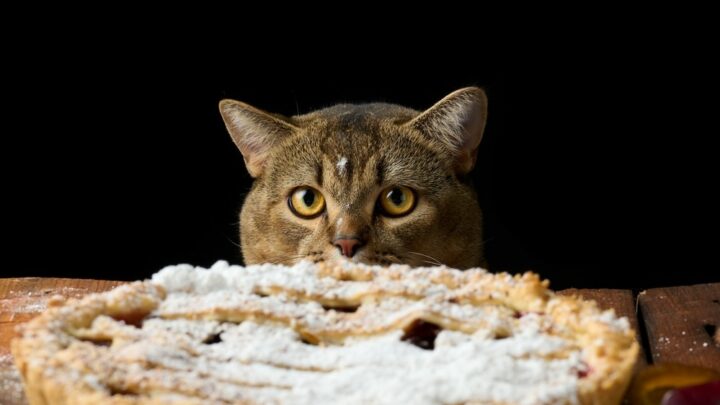Sugar? Yes, please! Wait, what? Can cats eat sugar? Umm, I don’t know. I was just singing the song, but we can discover it together if you want. Do you like the idea? Purrfect, let’s go!
Every time someone mentions sugar, I automatically start singing the Maroon 5 song, or I think about my favorite candy. Anyways, we have to answer a really important question that crossed your mind and it’s related to your feline friend.
You probably overheard someone saying how cats cannot taste sugar, yet it seems like your furry friend enjoys some of your favorite sweets. How’s that possible?
First of all, it’s true. Cats aren’t capable of tasting sugar. Their tongues are just not able to detect anything sweet. Cats have only 470 tastebuds (unlike human beings who have 9,000 and dogs who have 1,700) and not a single one of them is allocated to sweetness.
Sugar is not something that their little bodies need for normal functioning. They don’t have the desire to eat your sweets, in fact, they don’t have a sweet tooth at all. Lucky creatures!
The only reason they may get super excited while you’re opening Reese’s Peanut Butter Cups is your cat is interested in something else. She may connect the sound with you opening her packet of treats, for example.
These little carnivores enjoy meat and fatty food in particular, so the smell of your candies may be appealing to her. She may also be captivated by umami flavors, amino acids, or the minty smell of your bonbons and candy canes (cause, well, catnip smells very much alike).
Can our little feline friends make a mistake and think of a lollipop as a toy? I mean, mistakes happen, right?
So, we know that cats can’t taste sugar, but can they eat it? Time to find out!
Can cats eat sugar safely?
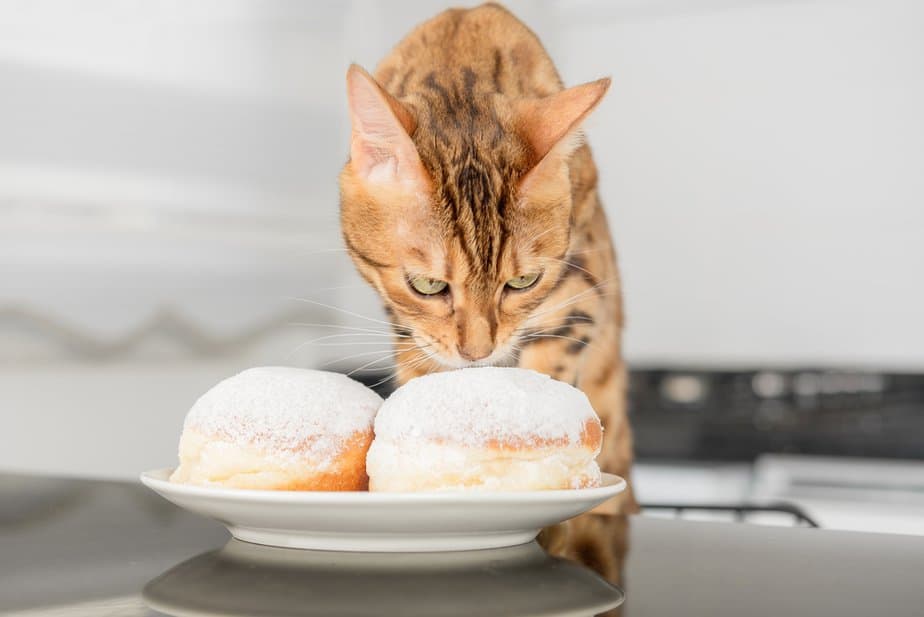
The shortest answer I can give you is yes, but… I know you were waiting for that “but.” Cats can technically eat sugar, but in a very moderate amount. What does that mean?
Your cat should not eat sugar in large quantities, and it should be dosed to her properly, according to her weight. Most human food is not so easy for cats to digest and sugar is no exception either. Should they consume too much in one go, they may end up with symptoms such as vomiting and diarrhea.
Cats don’t require carbohydrates in their diets but can tolerate a minimal amount. Back in the days when they were in the wild, they’d consume carbs from the stomach contents of their prey or they would nibble on plants to soothe tummy problems.
(Disclaimer: I’m only talking about domestic furbabies right now because wild cats still do this.)
Our domestic kitties still have small meals throughout the day, and for this reason, it’s not so problematic for them to eat a bit of food that contains carbs. It’s not recommended though, and sugar is definitely a food you should avoid feeding your cat.
If your kitty has a drop or two of maple syrup while you’re eating your pancakes, it’s not a big deal. But it has no nutritive value and consuming it often would mean that your furry friend is ingesting empty calories. It kind of makes no sense, right?
Now, on to another important question…
Is sugar harmful to cats?
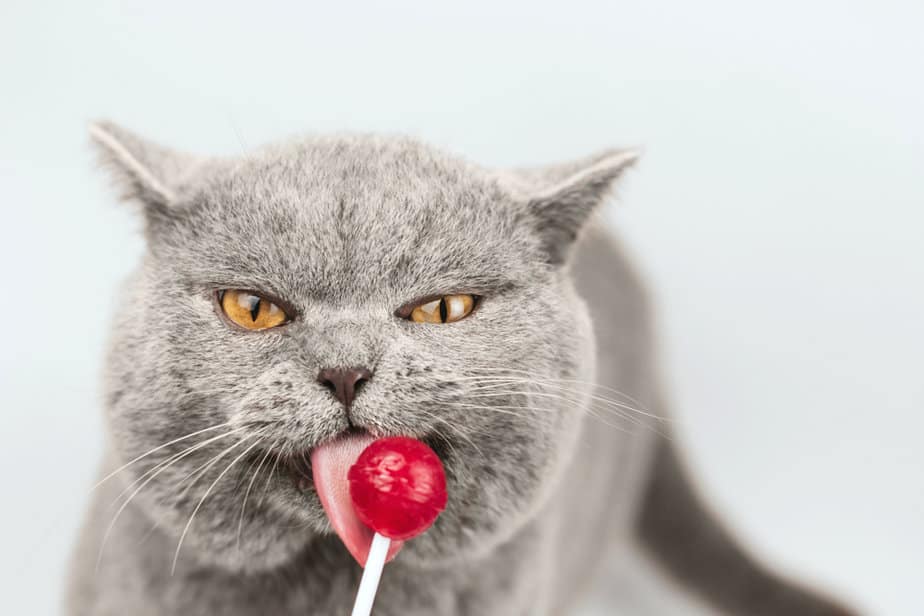
In large quantities, yes, sugar can be really harmful. Especially if we’re talking in the long run, cats can develop some critical diseases. If they consume large doses of sugary products daily, our feline friends may develop diabetes, obesity, and even some oral problems.
It’s basically the same with human beings. Too many empty calories that we consume can easily cause obesity, and I can bet that your parents were telling you to slow down on sugar because it will cause cavities.
Anyways, we’ll explain the three major problems that come with your feline consuming a lot of sugary food.
1. Dental issues
So, as we’ve mentioned, your mom and dad probably were drill sergeants when it came to oral hygiene. Well, the same applies to your kitty, and it’s a particular concern if she consumes a lot of sugar, even though she doesn’t taste it.
Frequent sugar intake can cause cavities, gingivitis, and other dental diseases that can harm your cat’s health. If bacteria develop and they enter her bloodstream, they can infect her kidneys, heart, and liver.
You can minimize the risk of these diseases developing if you not only limit her sugar intake, but also regularly brush your cat’s teeth. There’s no need to do this daily, but it will greatly help if her dental hygiene is on point.
2. Obesity
As previously stated, if consuming sugar, your feline is ingesting only empty calories and nothing nutritious. Cats need only a few hundred calories daily, and if their sugar intake is high, it can quickly lead to obesity.
I know chonkies look cute, but in reality, it’s harder for them to lead happy life and exercise as much as when they were a healthy weight. They will not be able to do certain physical activities and this can easily compound the problem.
If your furbaby is obese, her chances of getting insulin resistance, type 2 diabetes, and osteoarthritis drastically increase. The risks of heart attack and stroke are higher as well.
So, if you know that your kitty is prone to obesity, avoid giving her sugar. Also, consult with your vet in order to prevent any other health issues that may occur.
3. Diabetes
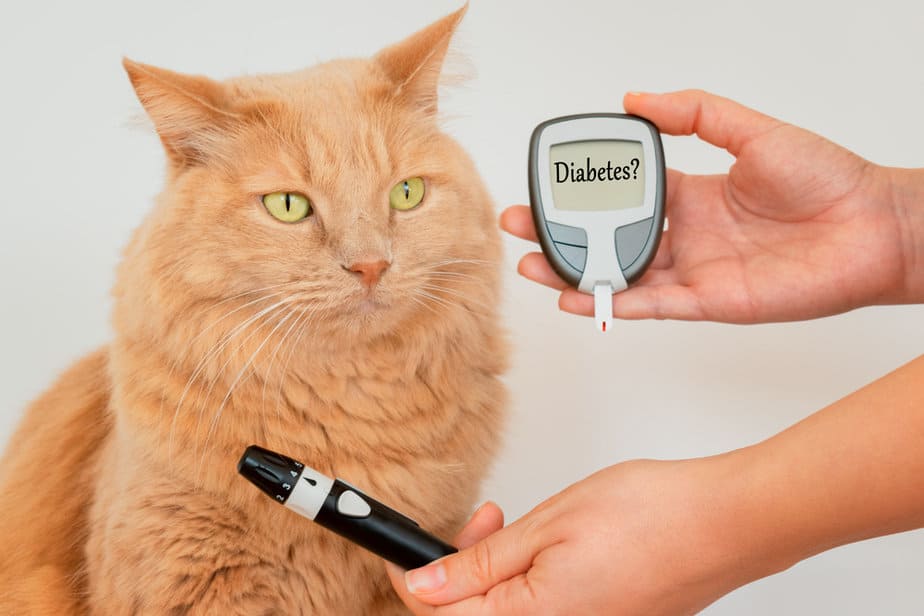
Same as us, felines can have diabetes. Even though cats don’t know they’re eating sugar, it can still do harm to their little bodies.
This illness can come about as a result of genetics, which is out of our control, but generally, the biggest contributor to feline diabetes is the food itself. What and how you feed your cat largely influences your cat’s chances of developing diabetes.
If your furbaby already has diabetes, your vet will have advised you to give her adequate food supplements and medications, and to take good care of her. This is in order to prevent serious damage to her liver and other internal organs.
If you suspect your cat has diabetes, some of these signs may indicate that you’re right.
Excessive urination and/or thirst: One usually leads to the other and this may be because their little bodies are fighting to get rid of the excess glucose.
Increased appetite and weight loss: When cats have diabetes, their cells are not able to process glucose the right way. This may cause her to eat a lot, yet to lose weight notably.
Her walk changes: Cats’ ability to walk is slightly weakened because the nerves are being damaged. This will greatly influence their hind legs and may cause permanent paralysis if not treated on time.
Last but not least, she may start vomiting and your otherwise lively cat will be passive. If you notice any of these signs, seek medical attention immediately and take her to the vet ASAP.
4. Sugar rush
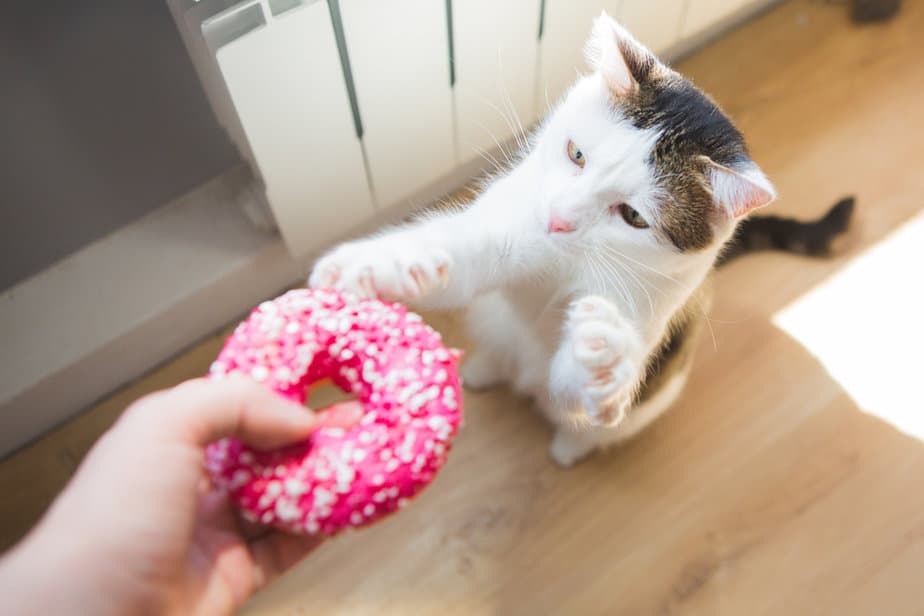
It may sound a bit odd, but cats can experience a sugar rush. This makes them agitated and they become hyperactive. I’m sure you won’t be able to miss this one if it happens.
Their blood sugar levels may increase when they are in stressful situations. This, however, doesn’t necessarily lead to hyperglycemia or diabetes. As soon as the levels of sugar get back to normal, they’ll be perfectly fine.
5. Sugar addiction
Surprisingly, cats don’t need to actually know what they’re eating, or how sweet something actually tastes, in order to suffer from sugar addiction.
The amount of sugar present in cat treats may be the reason behind this addiction. Companies that produce food for our furballs actually add small amounts of sugar, fat, and salt to dried kibble. This is solely to enhance the flavor, but it can make your cat addicted.
If you’re struggling to switch your cat to a healthier diet, make sure you decrease the amount of those kibbles you’re serving her. I know she likes the crunch, but there are some other options as well. You can serve her some broccoli, olives, cauliflower, zucchini, or even celery!
I know these are not sweet treats, so if you prefer to share something fruity with her, choose fruits that are safe for her, or that your vet recommended.
Are there any sweets that are toxic for cats?
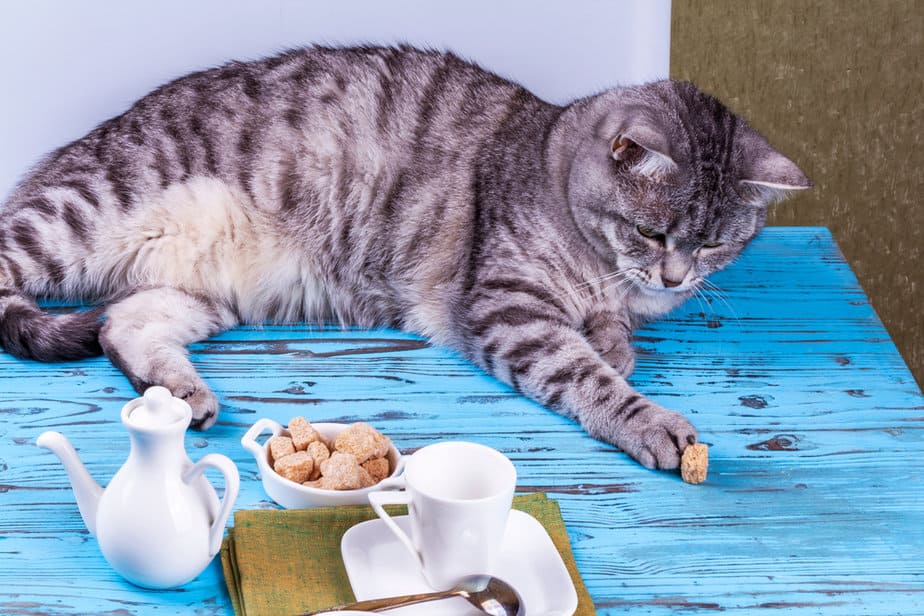
We’ve concluded that sugar, albeit not beneficial, is at least not toxic for your feline. But there are certain sweets that actually are. There are some compounds in sweet treats that cats may be allergic to or even put your furchild closer to that stairway to kitty heaven.
For example, chocolate is extremely toxic for your pet. The higher the percentage of cocoa it contains, the more harmful it is. If your cat consumes this heavenly human snack, you can expect symptoms such as vomiting, muscle trembling, or even suffer seizures and arrhythmia.
It may not be a problem if she takes a tiny nibble of chocolate topping from your donut, but try to avoid it.
Raisins and grapes are also really dangerous for our feline friends and can cause kidney failure and lead to some other serious diseases.
Some common spices that we use in baking treats, like cinnamon, nutmeg, and cloves, are dangerous to cats as well. Fatty and sugary food can also cause pancreatitis (inflammation of the pancreas), which is more likely to happen to cats that already have diabetes.
Can cats eat sugar substitutes?
Xylitol and other artificial sweeteners are a big no for your furball. They are often used in sugar-free food, such as bubblegum and bonbons, but can cause some serious damage to our little furry friends.
These substances can cause stomach upsets, vomiting, and diarrhea. They can also lead to liver failure and a serious decrease in blood sugar levels. Ultimately, it can lead to seizures and even death.
So, can cats eat sugar substitutes? The answer is a hard NO.
What about good sugars?
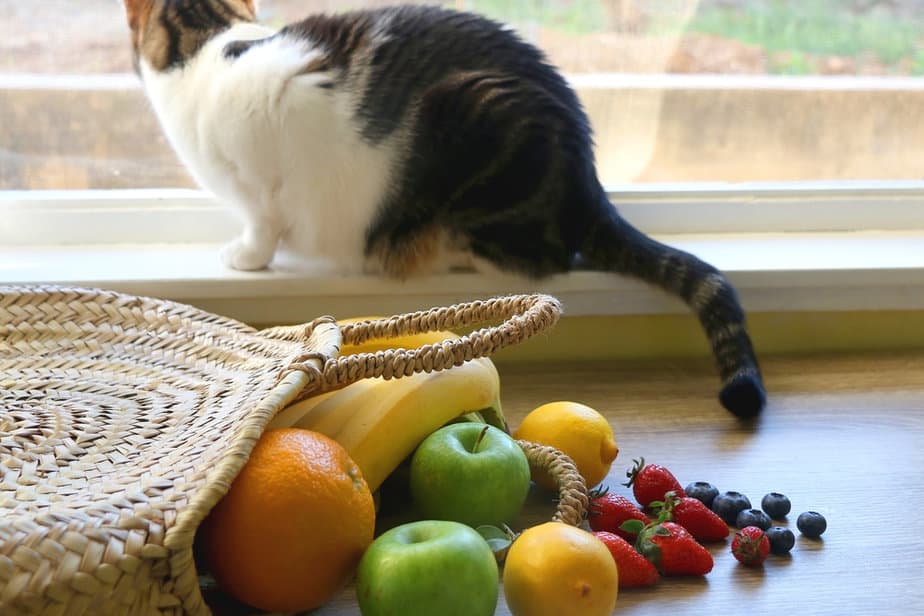
You’ve probably heard about “good” sugars, but what exactly are these? Sugar in general is not something even we should consume in large amounts. However, sugars that can be found naturally in our food are considered good ones.
We’re talking about dairy products and fruits. They come together with fiber, vitamins, minerals, protein, and phytochemicals. Since cats can have small amounts of sugar every once in a while, these natural sources are definitely a better choice of treat to share with your furkid.
Of course, dairy products are no-go if your cat is lactose intolerant (and most are), but introducing some fruit to your feline’s diet can do wonders. You can try serving her some apples, bananas, raspberries, blueberries, or even seedless watermelon.
These will help with her metabolism and cellular energy. Offer her these treats in moderation, since too much of anything can cause some health problems.
Can cats drink sugary water?
This one is not so easy to answer. Cats do need to drink water, and some experts even recommend serving your cat sugar water if she suffers a sudden loss of appetite. Also, if she’s not able to move, this could work as a short-term energy boost.
This mixture will help to revive your feline and give her just enough strength to visit the vet. In case she’s not able to drink it on her own, or she doesn’t want to, use a feeding syringe and gently place some sugar water into her mouth. This way, you’re able to control the amount of sugar she ingests.
However, moderation is key. Sugar has no nutritional value for cats, as we know by now, and it can be harmful to your furbaby in excessive amounts. It can cause oral problems and increase the risks of some serious diseases as we mentioned earlier.
So, pay attention to the amount you’re giving her. I know you love her and you’d do anything to see your furball jumping cheerfully around the house, but feeding her a lot of sugar won’t do the trick.
Other tasty snacks your cat can eat
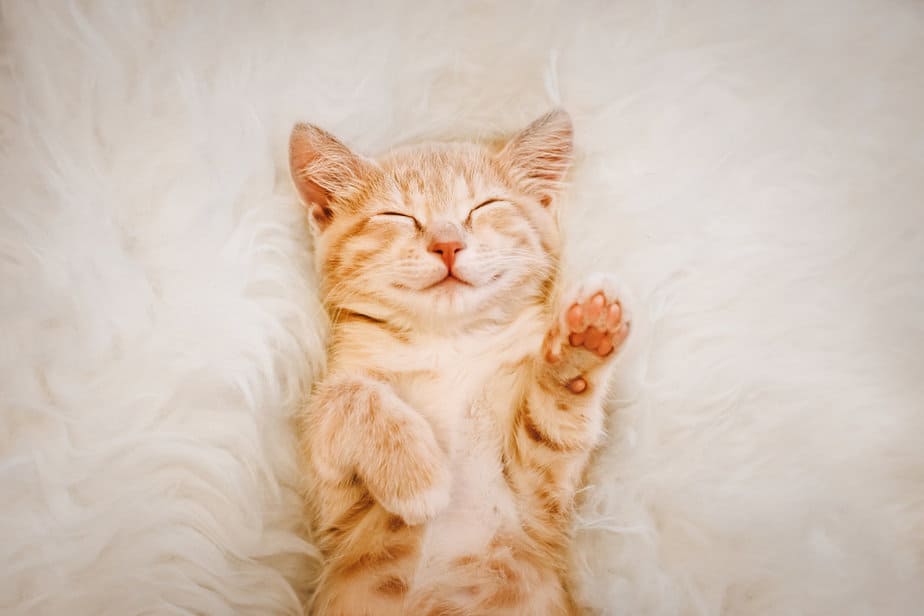
Of course, there are plenty of tasty snack alternatives that cats can eat. It really doesn’t have to be sugar. They don’t have a sweet tooth, as we said in the beginning, but being selfish when you’re treating yourself is not an option, right?
Instead of giving her sweet treats, take a different approach. Okay, you can serve her some of the fruit we’ve mentioned earlier, but what snack is so special that every time your furbaby catches a whiff, her whiskers dance?
You, you’ve guessed it right. Meat. Simply cook chicken or turkey breast in plain water and cut into small pieces. I’m sure your little carnivore will be delighted.
Does she have something she truly enjoys munching on? Don’t hesitate to spoil your feline with her favorite treat while you indulge your sweet tooth. Even more reason to do so if she behaved well while there were guests in the house.
And last but not least, something that can never be turned down: cat food. She’ll adore you for serving her this, because who doesn’t like good old classics?
What can you do to prevent your cat from eating sugar?
This may sound like I’m typing for a parent whose kid is a little snoop, but store anything sugary away from your feline’s reach. You can use your cupboard for storage or hide them in securely sealed containers, so she can’t access those sweets of yours.
Also, make sure she can’t go dumpster diving. Keep the trash somewhere she won’t be able to get to, like in your garage or in secured trash cans that she can’t open.
And if you have kids, you’ll probably need to have a talk with them about why they can’t share that chocolate bar with their favorite pet. Clearly explain that sharing is not caring in this case, rather quite the opposite.
I hope you managed to answer your question of whether cats can eat sugar. Now, sing along with me, will you?
